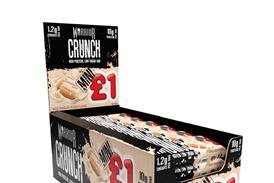With the election on the way, the political parties are working hard to explain that only their plans will cement the UK's recovery. But how do the Budget and the proposals of the other major parties affect convenience retailers?
Familiar increases in duty on tobacco and alcohol reinforce the UK's position as one of the most expensive markets in the world. The World Health Organisation predicted recently that sales of tobacco through illegal channels will exceed legitimate sales by the end of the decade. The social justifications are growing more and more tenuous as we see the criminal industry thriving in our most deprived communities.
Unfortunately, we cannot expect that a Chancellor of a different political persuasion will seriously consider ending the duty escalators. Indeed, the Chancellor's raid on the cider industry was an idea borrowed from his political opponents and unlikely to make either Party popular in the West Country.
There was brief excitement at the concept of a business rates cut for a year from this October, but the thresholds involved (a rateable value below £12,000 per annum) mean that few retailers in our industry will benefit.
Also hidden away in the pages of the Budget was the biggest economic policy announcement for our sector, a 2.2% increase in the minimum wage. This puts huge pressure on available staff hours and jobs in retail. This increase is both badly timed and ill judged.
If there is no change of government after the election, decisions in the latest Budget will be quickly replaced by new measures, and we have reason to be fearful of tax increases such as a hike in VAT. Once the election fight has concluded, the real decisions will be made on spending and we will have a clearer idea about how we are set for the next few years.
James Lowman















No comments yet